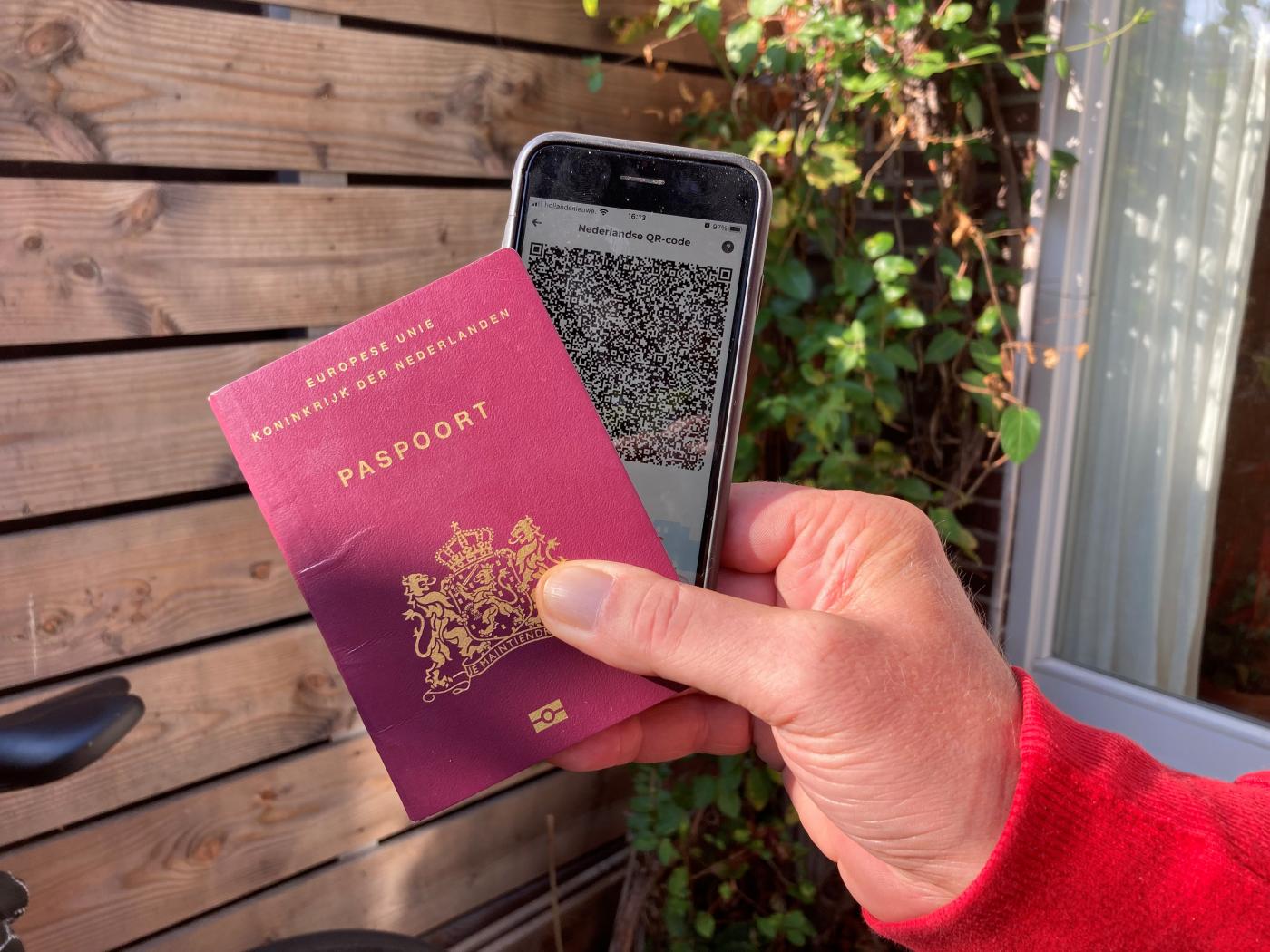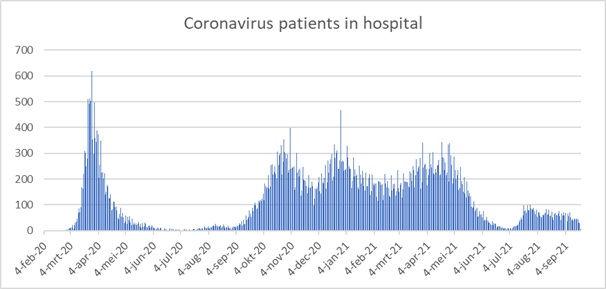Covid pass for higher education: eight questions and answers

Social distancing is no longer mandatory in the Netherlands, and universities are no exception. As of tomorrow, universities will not need to restrict the amount of students in their lecture halls, either. At the same time, however, more and more venues are asking for a Covid passport. Although this doesn't apply to higher education right now, the situation could change in the near future.
What is a Covid pass?
The Covid pass is a method to verify whether people have been fully vaccinated, tested negative in the previous 24 hours, or recovered from the coronavirus recently. This is usually done through a QR code on your phone. Venues, institutions, and events can use this pass as a prerequisite for access or entry.
Will universities start requiring it as well?
It could very well happen. Last spring, several voices in the sector declared that they supported the idea. After that, more rules were scrapped, leading Jouke de Vries, chair of Groningen University's board, to not rule out the possibility of introducing the pass there. “I can see it happening”, De Vries said to Groningen's university council.
In addition, the ministry has scheduled consultations (page in Dutch) on the topic with higher education institutions, which also indicates that the option is still on the table. The discussions will focus on “what a system of entry permits could look like in education if they were to be implemented in the future”.
Why would universities introduce a Covid pass?
It's clear that vaccination does not offer full protection against the virus and vaccinated people can still spread the disease. That makes a Covid pass ineffective, argue those opposing the measure, especially if the vaccinated don’t have to present a negative test too.
But not everyone agrees with that. People who have not been vaccinated have a “much greater chance” of catching and spreading Covid-19 than those who have received both jabs, state expers like microbiologist Marc Bonten, who wrote an op-ed for Dutch newspaper NRC (page in Dutch). He sees the Covid pass as a means of keeping the number of infections relatively low and preventing peak pressure at ICUs.
Isn’t that a form of discrimination?
A much touted argument against the Covid pass is that it would discriminate between people who have been vaccinated and people who haven't. But, according to the Dutch Institute for Human Rights (page in Dutch), having been vaccinated is not “a personal characteristic protected by law”.
However, the Covid pass could lead to unequal treatment towards those who are unable to get vaccinated because of an illness and those don’t want to get a jab because of their religion or world view. The Institute can launch an investigation on the matter, if requested.
Such a restriction can only be allowed if it serves one of the objectives set out in the convention on human rights, which includes protecting public health and the rights of others.
Should universities even be allowed to introduce a Covid pass in the first place?
Requiring a Covid pass to enter an entertainment venue is different from requiring it to attend school. After all, everyone is entitled to education. “What we don’t want is for a negative test to become a condition to get an education”, the minister of Education, Ingrid van Engelshoven, said in March. Even so, the ‘temporary law on testing certificates’ foresees the possibility of making the pass mandatory at universities. If the infection rate spikes in the Netherlands, this decision could be taken in the blink of an eye.
Is it necessary, though?
Right now, the number of verified coronavirus infections has been decreasing, which does make a difference: fewer people are ending up in the hospital or dying because of the coronavirus. If this trend continues, there will be no need for an entry pass. But is there anyone who can predict what’s going to happen this fall?

© HOP. Source: NICE/GGD
Is the implementation of such as pass feasible in practice?
You might think "if they can do it at the theatre or a festival, why not on campus?" But a campus is an open space with many access points, while theatres and festivals are set up to funnel everyone past a box office.
The introduction of the Covid pass could make for delays and disruptions, therefore. That's why the institutions are likely to choose to use a sample testing system, checking small groups like they do to catch free-riders on public transport.
What if anybody refuses to show their Covid pass?
Once again, educational institutions are different from a pub or a theatre. Access to education is such an important principle in te Netherlands that something will have to be devised for these cases. Maybe universities will have to use extra cameras so that seminars and lectures can also be followed online. Perhaps they'll have alternative assignments for those stuck at home? Rest assured, the last word has not yet been spoken.